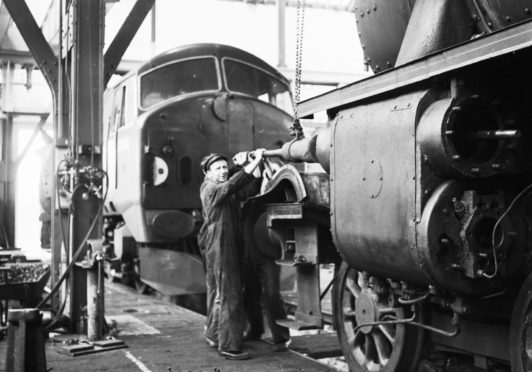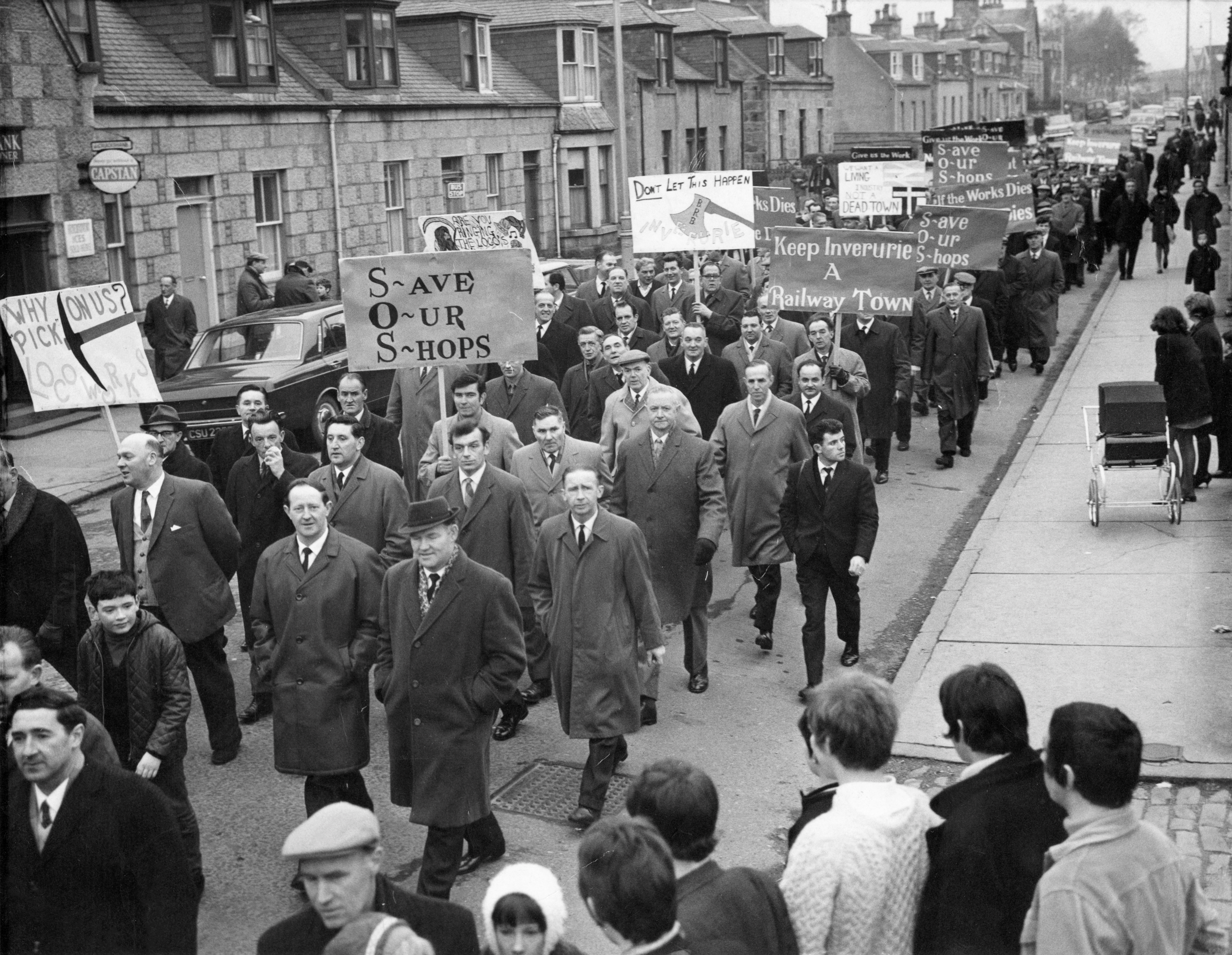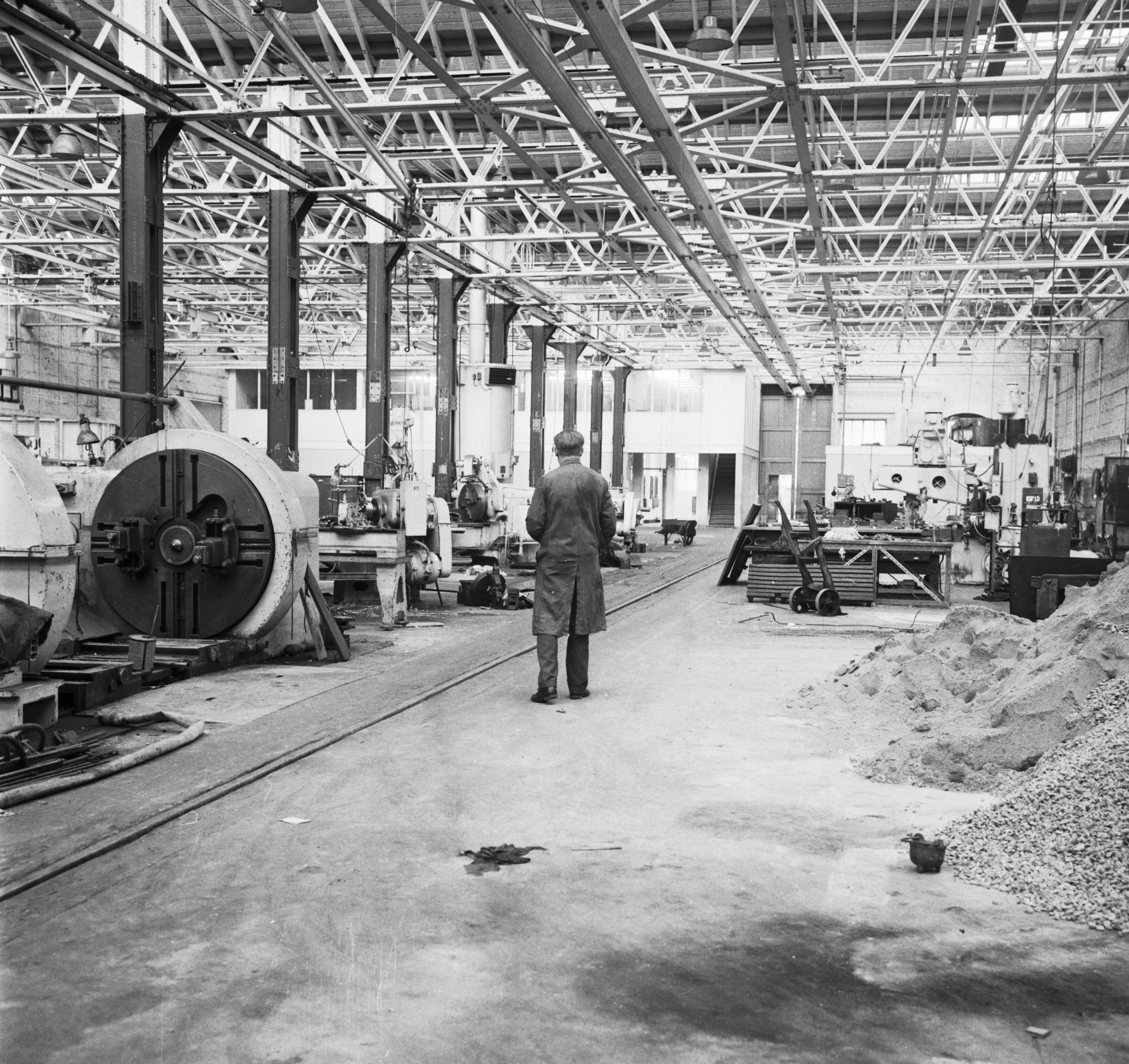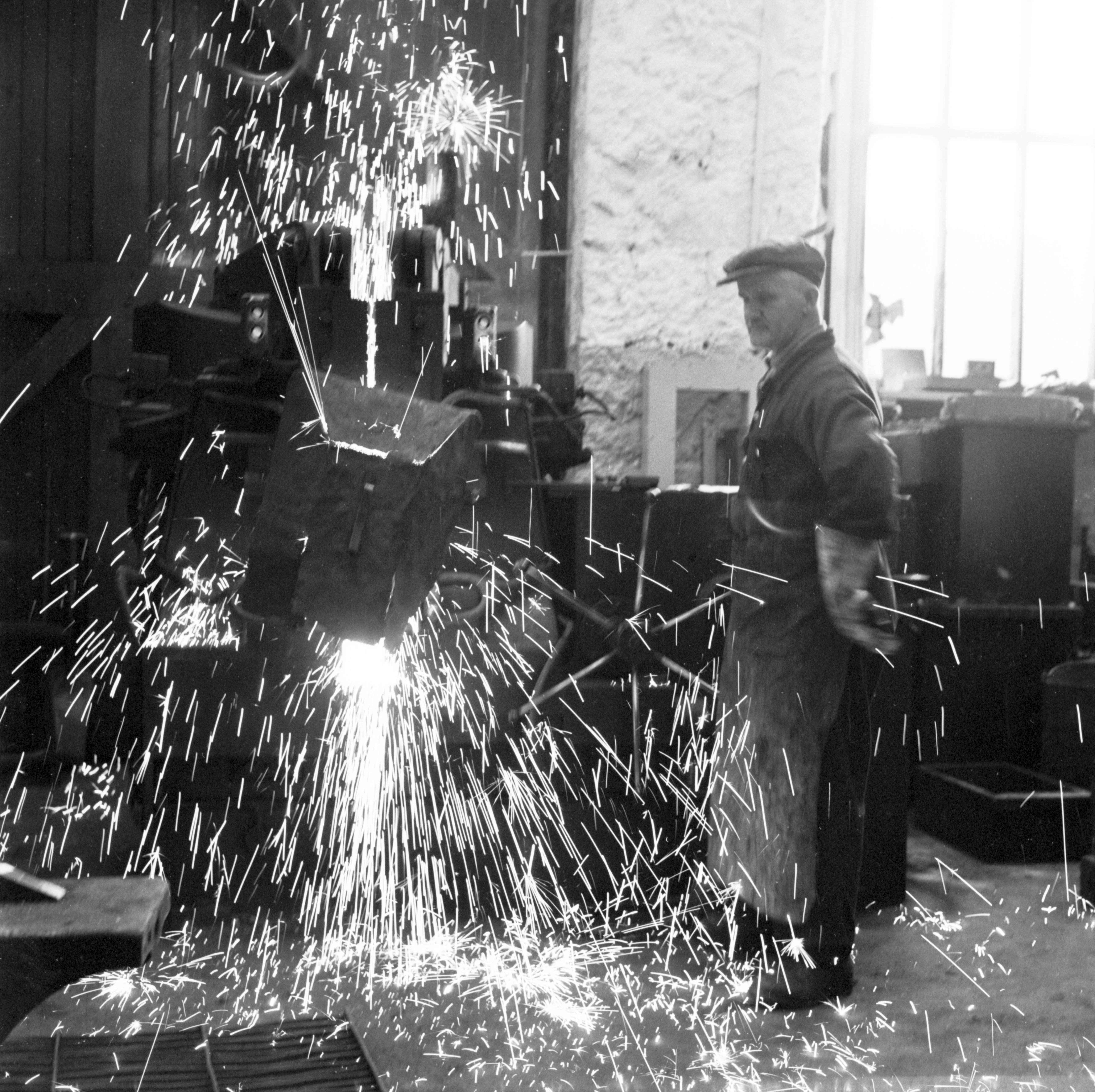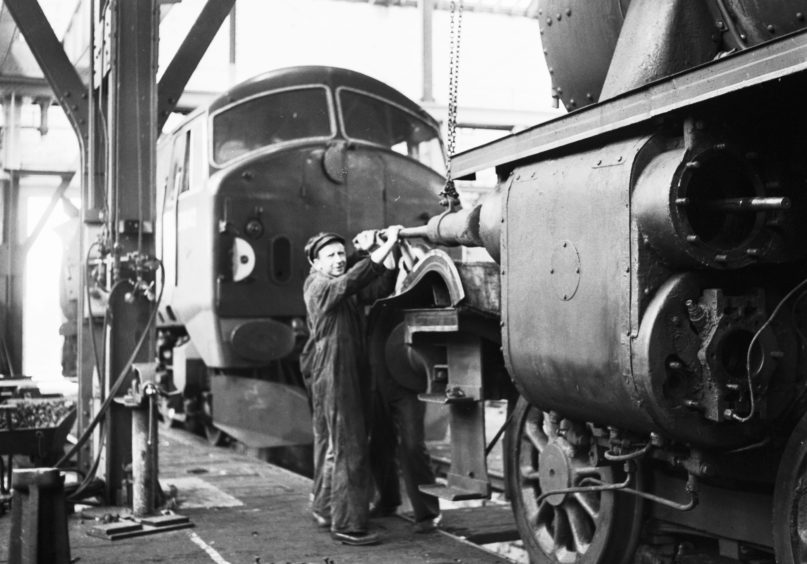Banners aloft, the working people of Inverurie took to the streets en-masse in the 1960s in protest at the loss of their livelihoods.
Their signs bore the messages “SOS: Save Our Shops”, “Don’t let it happen” and “Keep Inverurie a Railway town”.
More than half the town’s population were employed in the Inverurie Locomotive and Carriage Works and the workforce were filled with anger at the threat of its imminent closure.
Despite rescue bids – reported in the pages of The Press and Journal – the works sadly did close their gates, though nods to the past industry remain scattered throughout Inverurie.
Now, with 50 years having passed since they disappeared, a new play has been announced to mark the anniversary.
End of the Line has been created by the Mitchell School of Drama in collaboration with the Garioch Heritage Centre and will take place in one of the Locoworks’ former buildings.
The depot played a crucial role in the development of Inverurie, as well as the wider north-east.
“I remember it so clearly,” said Rhona Mitchell, 61, who founded the drama school in 1983 and will direct the play.
“I was 12 when it closed. My father worked there. He and the whole town were devastated.
“In the sixties there were marches through the streets in a bid to keep the railway alive.
“It was very stressful for the people of Inverurie.”
The play will be performed in one of the Locoworks’ former buildings – the carriage and wagon repair shop.
The audience will follow around the 30 cast members, who hail from across Aberdeen and the Shire, from room to room and even be treated to performances from a live band and ceilidh.
The play will also tell the story of a group of quines from Tait’s Paper Mill– or the Inverurie Paper Mill – which was also a huge source of employment for the town.
It long outlived the Locoworks and only closed its doors for good in 2009.
Mrs Mitchell said: “We start with the opening of the Locoworks and the majority of the play takes place in the 1940s before we reach its closure.
“We visit the Locos Boys, as they were called, as well as the Tait Girls and the Colony Houses – which was special accommodation build to house the workers on North Street.
“We move from room to room and we have a live band providing the backdrop to a dance scene.
“The night ends with a ceilidh.”
She added: “This idea has grown arms and legs since I first went into the Heritage Centre to suggest it.
“The Locoworks has some brilliant stories and played such a massive part in Inverurie’s history and we can’t wait for people to see that through this play.”
End of the Line will show five times between December 7 and 9.
For more information and tickets, visit
gariochheritage.co.uk/end-of-the-line
.
How Inverurie became ‘a town without a heart’
The Inverurie Locomotive and Carriage Works was once described as the “heart” of the north-east town.
They were constructed between 1898 and 1905 and occupied a 25-acre site next to the Great North of Scotland Railway (GNSR) line linking Aberdeen and Keith.
The GNSR intended the works to create new locomotives and eight new engines were built before the First World War.
One of these – the No 49 “Gordon Highlander” – is on display at Glasgow Transport Museum.
In the late fifties the Locoworks began to service Diesel Locomotives, along with a number of old steam engines, passenger and wagon fleets.
During the following decade, however, the business faced uncertainly as a nationwide restructuring of the country’s railways resulted in thousands of job losses and there were strikes over working conditions.
In 1968, Aberdeenshire West’s MP James Davidson made an impassioned plea in Parliament in a bid to protect Inverurie.
He said: “While it is appreciated that the population of Inverurie is only 5,267, it may be seen that it is a real railway town.
“Without the locomotive works Inverurie would be a town without a heart.
“If the decision goes against the Inverurie railway works, and if they are closed, that will haunt the Government and their representatives in the north-east of Scotland for a very long time.”
Despite such eloquent speeches, the Locoworks’ gates closed for the last time at the end of December 1969.
The newly abandoned site was sold to Aberdeenshire County Council for £25,000.
An oil company used the workshops until 2003, but for the next decade the site grew steadily more derelict until local property developer Malcolm Allan Housebuilders took it over.
But the site’s history is more commonly remembered through Inverurie Loco Works FC.
The club was founded in 1903 by workmen at the Locoworks.
